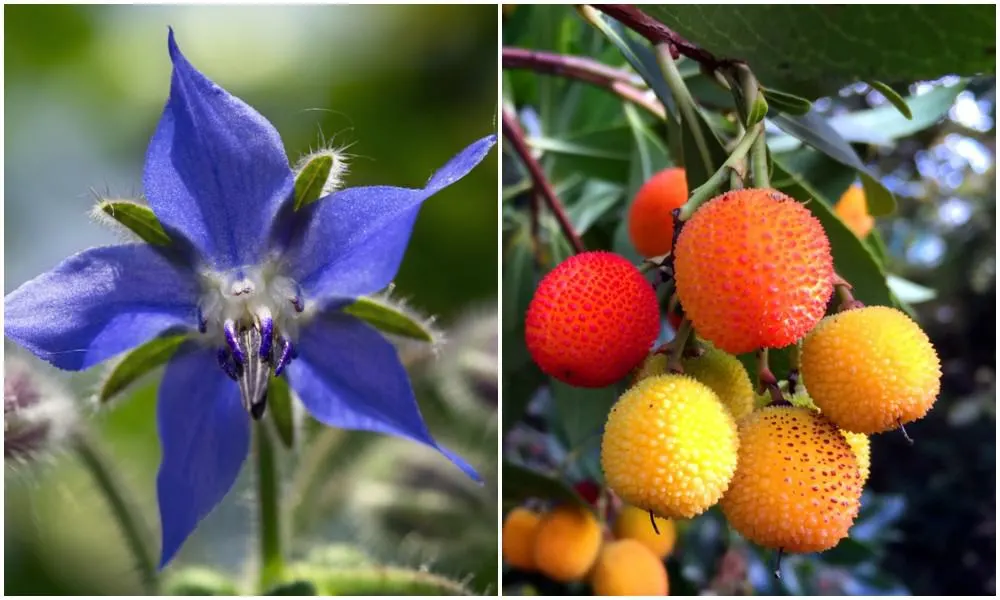
To help you decide what to grow in your garden, we’ve put together this list of the 40 best plants to grow in alkaline soil. If you have alkaline soil in your backyard, this should form a starting point to help you decide which are the best plants for your garden.
Do I Have Alkaline Soil?
Before you begin to choose plants for your garden, it is important to make sure that you know what kind of soil you actually have.
First of all, before you delve a little deeper to discover the pH of your soil, it can be helpful to know what type of soil you are dealing with. Your soil may be:
- chalky soil
- sandy soil
- silty soil
- clay soil
- peat soil
Or you may have a soil that is a mixture of two or more of the above. A perfect loam is a mixed soil that is ideal for growing the widest range of plants. Chalky soils, and some clay soils, can tend towards a problem with alkalinity.
If you have a naturally chalky soil, you may see white lumps of limestone or calcium carbonate material in your garden beds. This can be a dead giveaway that you are dealing with alkaline soil. However, the pH of your soil is not usually something that can be detected by eye.
You can test the pH of your garden soil using a tester kit, which can be bought at a number of retailers or found online.
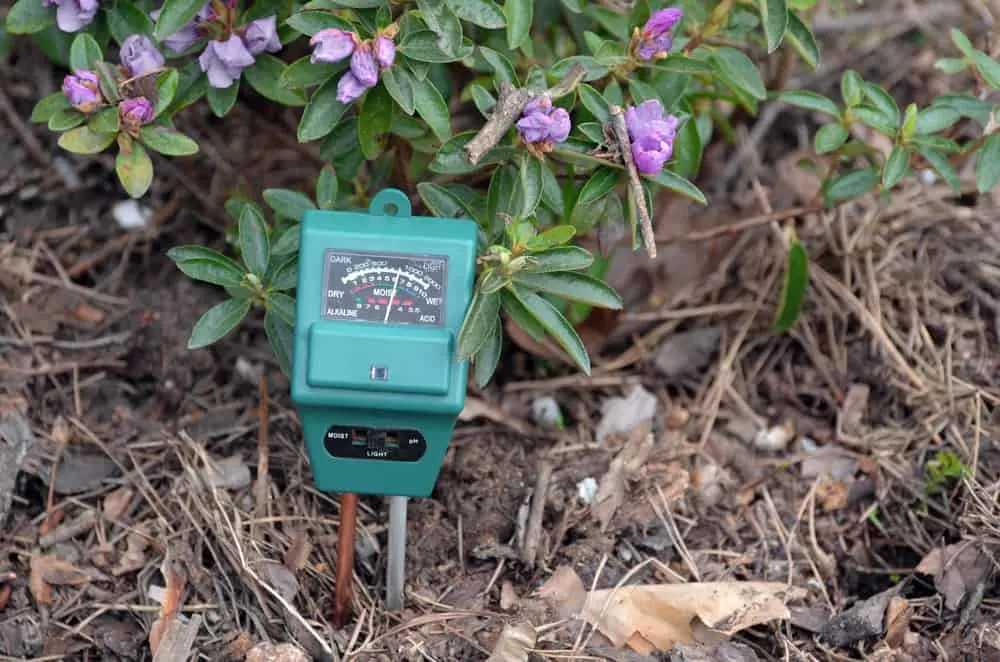
If your pH is between 7.1 and 8.0 then you are dealing with an alkaline soil.
PH tester kits are relatively inexpensive – but if you suspect you have alkaline soil, there is another neat trick you can try. Take some of your soil and place it into a jar of vinegar. If it froths up, it is high in lime and alkaline in nature.
If you are still in doubt, you may also be able to glean clues about the pH of your soil by looking at the plants that grow naturally in the surrounding environment, or plants that do well in your neighbor’s gardens. You may also be able to find information about the soil type and pH in your area by looking up the information online.
What Causes Alkaline Soil?
Alkaline soil can be natural, caused by the natural weathering of natural minerals calcium carbonate and calcium bicarbonate in the ground but alkaline soil can also have a range of man-made causes.
Man-Made Causes of Alkaline Soil
For example, it may be caused by:
- Pollution from coal-fires and coal power plants.
- Pollution from sodium salts used in many household cleaning products.
- Pollution from wet cooling towers which use seawater to dissipate waste heat in factories located close to the coast.
- Water that is treated to soften it being used to irrigate the soil. (Mains water that has been softened contains a relatively much higher proportion of sodium bicarbonates and less calcium and magnesium.)
Whether the cause is natural or man-made, it is important to take the pH of your soil into account when planning your planting scheme. Alkaline soils can occur anywhere, but are more common in hot places with lower rainfall, where salts and other chemicals are more likely to accumulate.
The Pros and Cons of Alkaline Soil
Like any soil type, and soil of any pH, alkaline soil can have both strengths and weaknesses.
Pros:
On the plus side, an alkaline soil can:
- Make it possible to grow certain plants that will not thrive in acidic soil.
- Be less prone to soil-borne diseases, due to the lower level of microbial action than in more rich, moist, more biologically active soils.
Cons:
On the other hand, alkaline soil can also have its disadvantages. It can:
- Mean that it will be challenging to grow ericaceous (acid loving) plants.
- Make nutrients needed for plant growth, such as phosphorus, iron and manganese less readily available, especially if the alkalinity is extreme.
Should I Amend My Alkaline Soil?
Generally speaking, unless your soil is extremely alkaline, it is best to work with what you have. This means that rather than amending the soil pH, which can be a rather drastic measure, it is usually best to simply accept the limitations and grow plants suited to where you live.
Mildly alkaline soil can actually be an advantage, and so amending this soil is not usually the best option. Rather, think about the other challenges posed by your soil type (such as poor nutrient retention or water retention). Think about how these, rather than pH, can be overcome. Often,the best way to improve your soil is by improving its structure and fertility with the judicious application of organic matter. Adding organic matter will slowly and gently lower pH subtly over time.
Sometimes, however, extremely alkaline soil may need to be amended. It can be amended with the addition of large amounts of acidifying organic material. For example, this can be achieved with a heavy mulch of pine needles.
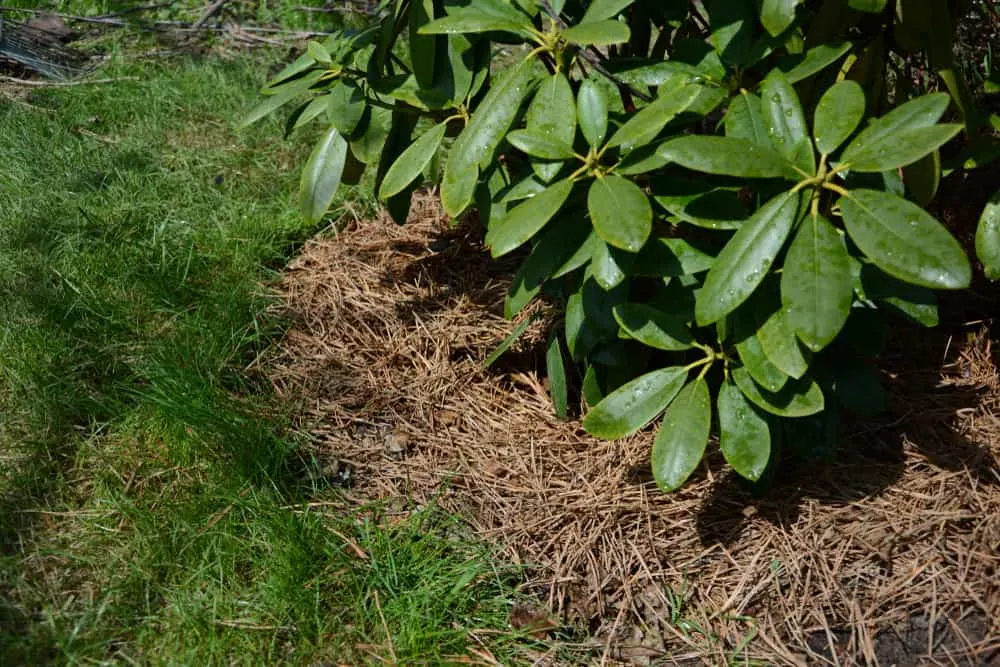
Adding amendments such as aluminium sulfate, diammonium phosphate, ferric sulfate, ammonium nitrate or sulfur is not recommended in an organic garden.
40 Trees, Shrubs, Edibles & Flowers That Grow In Alkaline Soil
While it is by no means a comprehensive list, the below list should help you find trees, shrubs, edibles and flowers that can cope with, thrive in or overcome the challenges that come with an alkaline soil pH.
Best Trees for Alkaline Soil
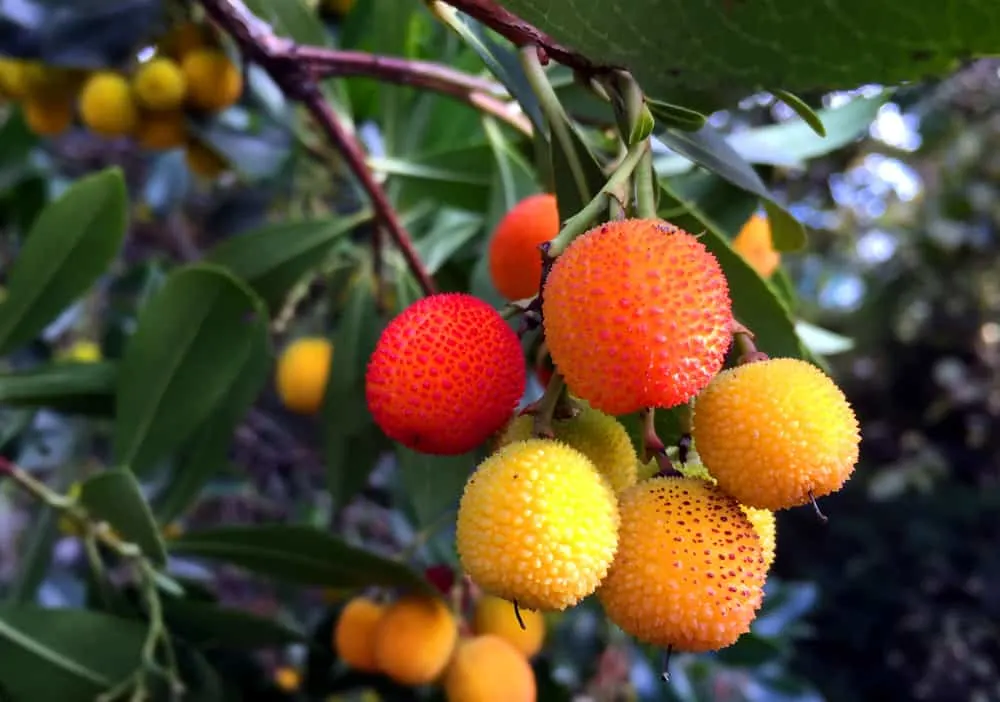
When planning a garden, it is often best to start with the largest plants. Trees, large and small, can be accommodated in almost any backyard. It is with the trees, then, that you should begin. A planting scheme for an alkaline soil garden might include:
- Blackthorn
- Cotoneaster Frigida
- Field Maple
- Hawthorn
- Holm Oak
- Montezuma Pine
- Spindle
- Sorbus alnifolia
- Strawberry Tree
- Yew
Most traditional garden fruit trees prefer a slightly acidic soil environment. However, if you have a slightly alkaline soil it is worth noting that fig trees and cherry trees are amongst the trees that can best handle those conditions.
Another thing to consider is that it is best to source your trees from a local plant nursery, where the specimens are more likely to be suited to the soil conditions where you live, and will be grafted onto rootstocks suited to a more alkaline environment.
Best Shrubs for Alkaline Soil
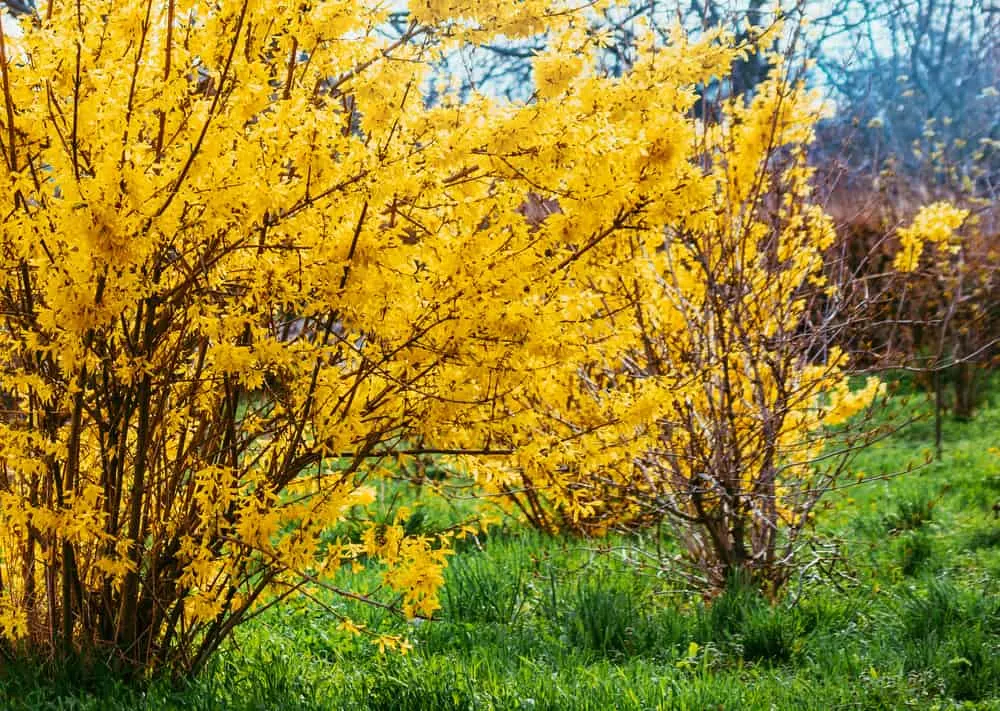
Shrubs and bushes are ideal for creating edge beds and borders. They can also be used to create layers of planting beneath your chosen trees. Good shrub choices for an area with alkaline soil might include:
- Buddleia
- Deutzia ‘Pride of Rochester’
- Forsythia
- Hydrangea
- Lilac
- Osmanthus
- Philadephus
- Santolina chamaecyparissus
- Viburnum opulus
- Weigela
Best Edible Plants for Alkaline Soil
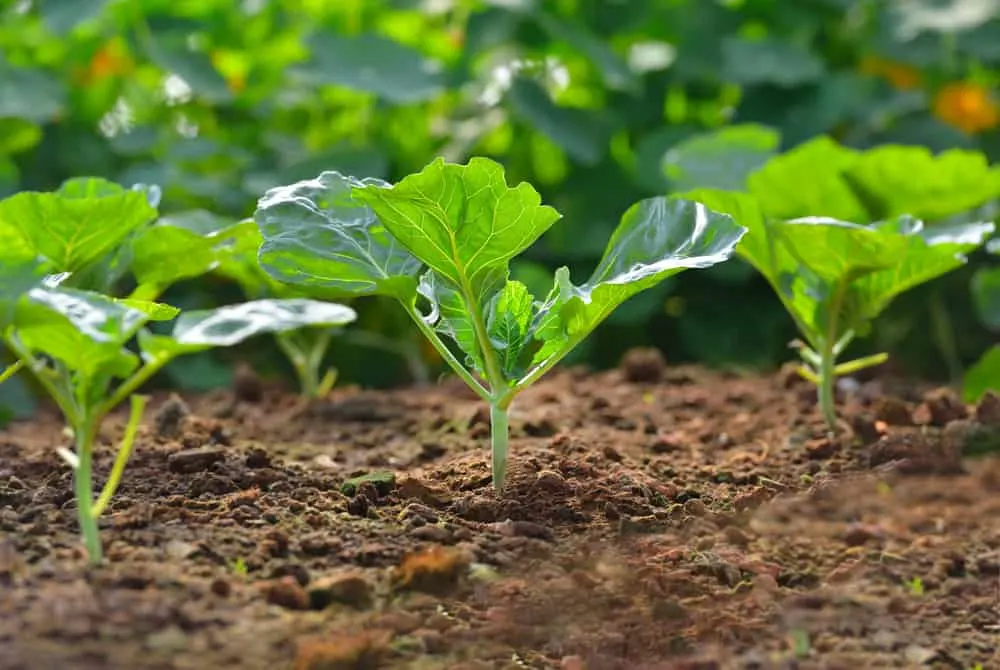
The limitations of an alkaline soil can make it a challenge to grow certain fruits and vegetables, many of which will do best in a neutral or slightly acidic soil. However, members of the brassica family, legumes and arid-climate herbs can all do well in a slightly alkaline environment.
A mildly alkaline soil environment can be an advantage for members of the cabbage family, for example, because it makes it less likely that you will develop problems with diseases like ‘club root’.
Some of the best edible plants to try in alkaline growing areas are:
- Asparagus
- Broccoli/Brussels Sprouts
- Cabbages
- Kale/ Collard Greens
- Leeks
- Marjoram
- Peas
- Pole Beans
- Rosemary
- Thyme
Best Flowers for Alkaline Soil
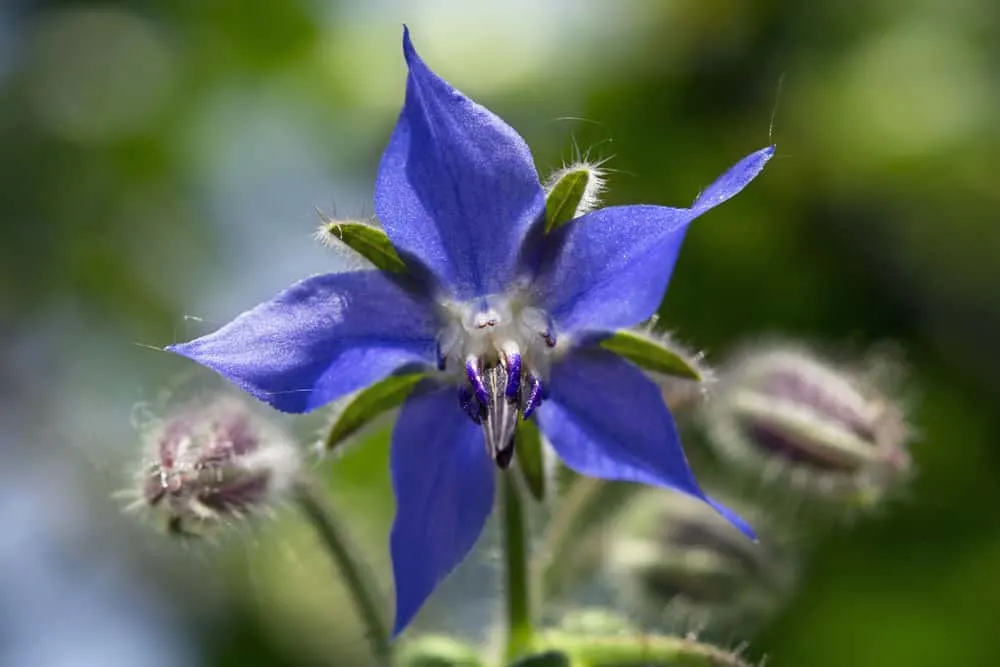
Once you have established structure in your garden with trees and shrubs, and considered how you can make full use of your garden by growing edible crops, it is time to think about the lower layers of your garden.
Flowers in the herbaceous layer have a huge impact on the visual appearance of your garden. But flowers are not only good for human beings. Flowers are also very important for garden wildlife. They can help attract pollinators and other beneficial insects.
Some good flowers for alkaline soil are:
- Anchusa
- Borage
- California Poppies
- Lavender
- Lily of the Valley
- Phacelia
- Polemoniums
- Trifolium (Clovers)
- Viper’s Bugloss
- Wild Marjoram
Thinking carefully about your soil, its pH and other characteristics, can help you create a realistic and successful planting scheme for your garden.
The above list should have given you a reasonable jumping off point, which will allow you to do some more of your own research and find the very best plants for your particular alkaline soil garden.
